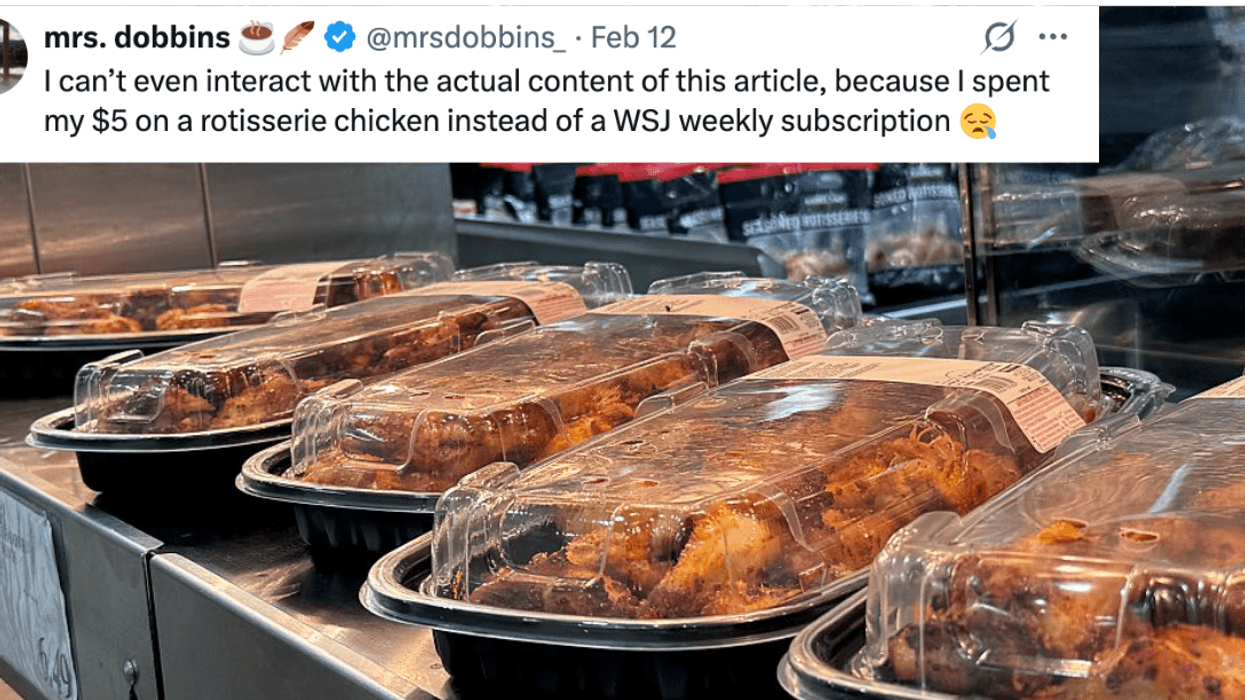Kellogg's CEO Gary Pilnick was harshly criticized after he told CNBC that the high cost of groceries has led some cash-strapped families to eat cereal for dinner—and that the brand is leaning into that reality by actively promoting it.
Pilnick argued that cereal is a cost-effective option, emphasizing its affordability during a segment on CNBC's Squawk on the Street.
He stated:
“The cereal category has always been quite affordable, and it tends to be a great destination when consumers are under pressure. If you think about the cost of cereal for a family versus what they might otherwise do, that’s going to be much more affordable.”
When journalist Carl Quintanilla asked if his suggestion has the "potential to land the wrong way," Pilnick replied:
“In fact, it’s landing really well right now. Cereal for dinner is something that is probably more on trend now, and we would expect to continue as that consumer is under pressure.”
You can hear what he said in the video below.
According to Healthline, exceeding the recommended daily limit of added sugars poses health risks and contributes to various chronic diseases. Notably, a significant portion of added sugar in the American diet comes from ultra-processed and packaged foods, with breakfast cereals ranking as the seventh-largest contributor among adults in the USA.
Breakfast cereals, often perceived as a quick and convenient morning option, may harbor more sugar than meets the eye. Many cereals list sugar as the second or third ingredient. Excessive sugar intake, prevalent in ultra-processed cereals, can lead to adverse health effects, making it crucial to navigate the sugar content in these popular breakfast options.
Breakfast cereals made with refined grains and sugars tend to have a high glycemic index, contributing to a rapid spike in post-meal blood sugar levels. This fluctuation can be concerning for individuals seeking better blood sugar control, especially those with conditions like diabetes.
Pilnick was swiftly criticized.
Pilnick's remarks come against the backdrop of increasing food prices in the United States. In 2023, the Consumer Price Index revealed a 0.3% decline in cereal prices, contrasting with previous years that witnessed a 6% increase in 2021 and a 13% rise in 2022 for breakfast cereals.
Beyond cereals, the overall inflation trend has impacted various food categories. In 2023, fats and oils experienced the steepest increase at 9%, followed by sugar and sweets at 8.7%, and cereals and bakery products at 8.4%. While some food categories, including beef, eggs, fruits, and vegetables, grew more slowly, pork was the only category to decline by 1.2%.
The U.S. Department of Agriculture reported that in 2022, consumers allocated over 11% of their disposable income to eating, whether at home or in restaurants. By the end of 2023, consumers were paying nearly 20% more for groceries than in 2021.
















 @LeeMerrittesq/X
@LeeMerrittesq/X @bob_moss/X
@bob_moss/X @jelanijones/Bluesky
@jelanijones/Bluesky @Aurkayne/X
@Aurkayne/X @sadcommunistdog; @froglok/Bluesky
@sadcommunistdog; @froglok/Bluesky